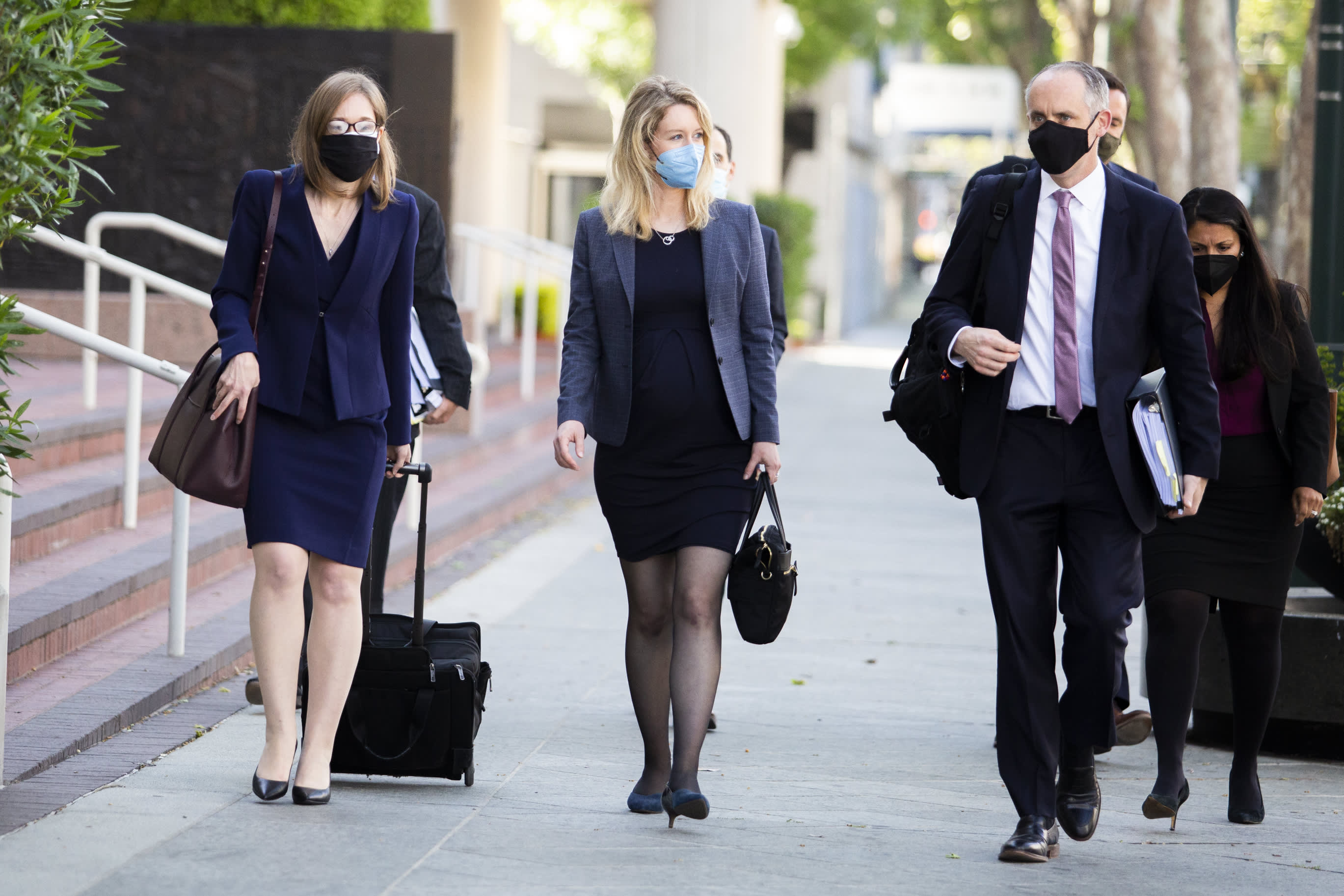Elizabeth Holmes’ lawyers cite widespread negative coverage in request to expand jury selection

Elizabeth Holmes, founder and former chief executive officer of Theranos, center, exits U.S. federal court in San Jose, California on May 6, 2021.
Nina Riggio | Bloomberg | Getty Images
In the case of Elizabeth Holmes apparently all publicity isn’t good publicity.
Attorneys for the former Theranos CEO are citing widespread negative coverage as a reason to expand selection for the pool of jurors in her upcoming criminal fraud trial.
A 21-page motion filed late Thursday spelled out example after example of highly descriptive and unflattering stories in the past several years about Holmes.
“The publicity is pervasively negative,” lawyers for Holmes said. Adding she is, “routinely referred to in derisive and inflammatory terms that are directly relevant to the wire fraud charges in this case. Media coverage describes her as a ‘fraud,’ ‘fraudster,’ ‘con artist,’ ‘disgraced Theranos founder,’ ‘scam artist,’ and a ‘raging psychopath.'”
Holmes is asking for expanded jury summons and has proposed a written jury questionnaire. Lawyers for Holmes wrote, “media coverage also trades on prejudicial tropes and recurring themes, often relating to Ms. Holmes’ demeanor, voice, and physical appearance.” They say the negative publicity traces back to at least 2015, and has “focused intensely on Ms. Holmes personally, not simply on the circumstances of Theranos’ corporate dissolution.”
In the court filing, Holmes’ attorneys said they did a comprehensive search of news articles and other media which generated 462,000 entries. Among them included 3,755 results of “Negative Personal News,” and 2,862 results of “Negative Business News”.
Attorneys for Holmes proposed a 46-page jury questionnaire, including topics ranging from working in the blood testing or medical industry to experience in the venture capital world.
The questionnaire also asks if the potential juror has ever been the victim of fraud, had a bad experience with an investment or been involved in a dispute about misdiagnosis.
Holmes dropped out of Stanford at 19 and founded Theranos, claiming its technology could accurately run thousands of tests with just a drop or two of blood. The former executive has pleaded not guilty to a dozen criminal wire fraud charges in connection with misleading patients and investors.
The judge set a pre-trial hearing for June 15. Jury selection is set to begin on Aug. 31 in San Jose.